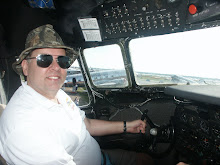I spent my 44th birthday flat on my back in so much pain I could not sleep. If one has never experienced back pain, it is impossible to describe. Medicines had almost no effect. The doctor suggested physical therapy. Gradually, it helped. At the end of eight weeks, my therapist told me that I knew enough to keep the pain under control.
With success of the physical therapy, my doctor did not see a need to pursue more invasive treatments. I suggested that if I lost my extra seventy extra pounds, perhaps I wouldn’t have so much pain. My doctor agreed, but when I told him I was considering Karate, he was strongly against it. He suggested Pilates instead.
That conversation kept me out of the studio for two years. I continued to do the physical therapy exercises, and began to feel stronger. Almost three years after my back injury, I decided to ignore the doctor and give it a try.
I'm glad I did.
The three years of training to obtain a black belt seemed like forever. Most most things in life, I've been a fast learner. It was difficult for me to accept such a seemingly slow pace.
In the first year, I began to understand some of the subtleties of the art. It’s not just blocking, punching and kicking, but how well one blocks punches and kicks – the correct stance, balance, body position, speed. Seemly simple exercises are actually quite difficult. And while the first one may look pretty good, but how well can you do the hundredth? Training the body this way takes time, and can’t be rushed. The repetition trains the muscles and the mind to make the motions habitually. They become second nature.
When I started, I hoped to lose a few pounds, and reshape my flabby self. In the first six months, I lost 17 pounds. Since then, while I continue to reshape, I haven't lost any further weight.
The mental changes surprised me. Within a few months, I found I could concentrate better -- I was able to think like I could in my early thirties. This sort of concentration is very beneficial in my line of work.
For some people, a black belt signifies something dangerous. They joke that you have to register yourself at a police station as a weapon, just so your neighbors will know not to mess with you. This couldn’t be further from the truth. Martial art training does not make one more volatile. With the confidence gained through training, you become a calmer, less anxious person, ready for anything.
I view the black belt as something akin to a pilot’s license. In flying, flight examiners often say that earning your Private Pilot license is the beginning of your training. The license signifies that you meet the minimum qualifications of aeronautical knowledge, piloting skills and judgment to be permitted to fly yourself and passengers. Just having the license does not signify any sort of aeronautical mastery. The true learning starts when you alone are responsible for the safe outcome of each flight. The lesson is clear: that a good pilot never stops learning.
To me, the black belt shows that one has demonstrated the minimal proficiency at martial arts necessary to advance to further study. Anyone with a black belt has put in a lot of hard work. Three years of training twice a week is three hundred lessons. For some, the number may be closer to five hundred. During that time, the student honed their powers of observation. They should be able to pick up the subtle details of instruction. Black belts have shown the mental toughness to keep going even when the body wants to stop – they won’t give up. Above all, the students have shown a willingness to learn. All of these are necessary for advanced study of martial arts. This isn’t the end of training, but the beginning.
Since earning my black belt in Tang Soo Do, I've continued to train, but circumstances have lead me to also train in Hap Ki Do and Tae Kwon Do. It's been four years now, and I don't see any signs that I want to stop. It isn't just part of my life, on some level, it is life itself.



